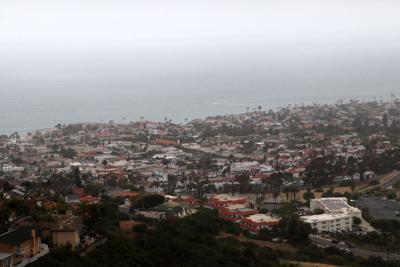Reviewing a series of recommendations made by the city’s Planning Commission in mid-May, the Dana Point City Council on Tuesday, June 6, discussed potential amendments to the regulations governing accessory dwelling units (ADUs).
Consideration to revise the city’s ADU ordinance comes nearly two years since councilmembers did so in August 2021 to comply with state law. The city is looking once again to revise the ordinance for developments outside of the coastal zone, as the state’s Department of Housing and Community Development claims the ordinance is not consistent with state laws.
The Dana Point Planning Commission held a special meeting on May 15 to propose changes to the ADU ordinance to address HCD’s and residents’ concerns.
One of the Planning Commission’s recommendations was to consider reducing the fees for site development permits (SDP) related to ADUs. SDPs are required whenever an ADU is proposed for a property with nonconformities, Community Development Director Brenda Wisneski explained.
The existing SDP fee is $7,594. Staff recommended reducing the fee to $3,680.
While discussing the possibility of reducing fees for site development permits related to ADUs, Councilmember Jamey Federico noted that permit fees are meant to cover staff time and city expenses for the service being provided.
Wisneski said the fees are based on an average of permit type and that processing ADUs is less extensive.
City Attorney Patrick Munoz explained the purpose of SDPs is to allow the city more flexibility in ADU regulations.
“Instead of prohibiting something, we can still go ahead and permit it if it’s a good project, it’s not going to have negative impacts on health, safety, welfare and we feel that we can go ahead and approve it anyway,” Munoz said.
The SDP process allows the city to review projects that may otherwise be denied.
Mayor Mike Frost said he’d like to see the SDP fee “as low as possible.”
“I don’t feel good about charging 3,600 bucks, I don’t like to do that, but it is important for some parts of our community to get neighborhood and community buy-in and just one level deeper,” Frost said.
Frost added that the SDP process would “hopefully invite some neighbor feedback and allow you to take a look at it in a different, sort of detailed level.”
The Planning Commission also recommended allowing ADUs in existing single-family homes in multi-family zones.
Wisneski explained that parking and setbacks requirements are different for ADUs than they are for duplexes, making ADUs a more attractive option for some.
Munoz said for areas like the Lantern District, where there are minimum lot size requirements or zoning restrictions that prevent or make it difficult for some properties to be developed into a duplex, an ADU can be a good option.
If an existing single-family home in a multi-family zone is conforming to city code, it could add an ADU by-right unless there are parking issues, Wisneski explained.
Though the Planning Commission was split on parking requirements, with three commissioners arguing that parking is an issue and two arguing it is not, the council discussed that an SDP could be acquired if an ADU applicant did not want to provide required parking.
State law does not require parking to be provided if the ADU is within a half-mile of a bus stop. With the proposed amendment to the ADU ordinance, the city looks to require that parking be provided if the ADU is within a half-mile of the coastal zone. Parking requirements can be waived with an SDP.
Based on Planning Commission recommendations, staff proposes reducing building permit requirements to only what is required by code, to ensure ADUs are treated like any other development.
“Another issue the Planning Commission heard from the public on May 15 is that we do require, under the current process—it’s not in the ordinance, but we are requiring—a higher level of permit submittals or plan details that we really don’t require for other building types,” Wisneski said.
“So, recognizing that seemed to be overly burdensome,” Wisneski continued. “We have modified our ADU application to eliminate what was being required as mechanical, electrical and plumbing plans.”
The proposed amendments also look to make changes to the maximum height, maximum number, parking, setback and location requirements, as well as changes to the discretionary process and deed restriction as required by state law.
Frost noted that he thought the city was moving in the right direction to make it easier for residents to understand the city’s policies on ADUs.
City Council will hold an additional public hearing during its June 20 meeting to consider amended regulations to the city’s ADU ordinance.
During its July 18 meeting, council will hold a public hearing to discuss permit fees for ADUs.


